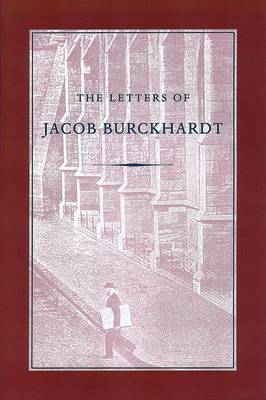
- Afhalen na 1 uur in een winkel met voorraad
- Gratis thuislevering in België vanaf € 30
- Ruim aanbod met 7 miljoen producten
- Afhalen na 1 uur in een winkel met voorraad
- Gratis thuislevering in België vanaf € 30
- Ruim aanbod met 7 miljoen producten
Omschrijving
As a rule, an author's correspondence possesses only a secondary interest, but Jacob Burckhardt's letters are of primary interest to students of history because of the nature of the man and of his major writings. Judgments on History and Historians, for example, consists not of Burckhardt's own lectures, but of notes on his lectures by one of his greatest students. It is because Burckhardt was a remarkably private man who believed that contemplation was the key to insight into the nature of man and history, and because his approach to the study of history was reflective rather than systematic or dogmatic, that his letters possess a singular significance. For it is in his letters that Burckhardt provides additional and even personal observations on his learned explorations of antiquity, the Renaissance, and modern Europe, and it is in his letters that Burckhardt muses on the consequences that he believed--and feared--awaited a Europe that had given itself almost wholly to a rationalistic and materialistic understanding of history and destiny.
Jacob Burckhardt (1818-1897) has been called "the most civilized historian of the nineteenth century," and he was certainly one of the greatest historians of art and culture of his time. A professor at the University of Basel, Burckhardt was especially knowledgeable about the Renaissance, and his best-known work is The Civilization of the Renaissance in Italy.
Specificaties
Betrokkenen
- Auteur(s):
- Uitgeverij:
Inhoud
- Aantal bladzijden:
- 327
- Taal:
- Engels
Eigenschappen
- Productcode (EAN):
- 9780865971233
- Verschijningsdatum:
- 17/10/2001
- Uitvoering:
- Paperback
- Formaat:
- Trade paperback (VS)
- Afmetingen:
- 150 mm x 229 mm
- Gewicht:
- 544 g

Alleen bij Standaard Boekhandel
Beoordelingen
We publiceren alleen reviews die voldoen aan de voorwaarden voor reviews. Bekijk onze voorwaarden voor reviews.









